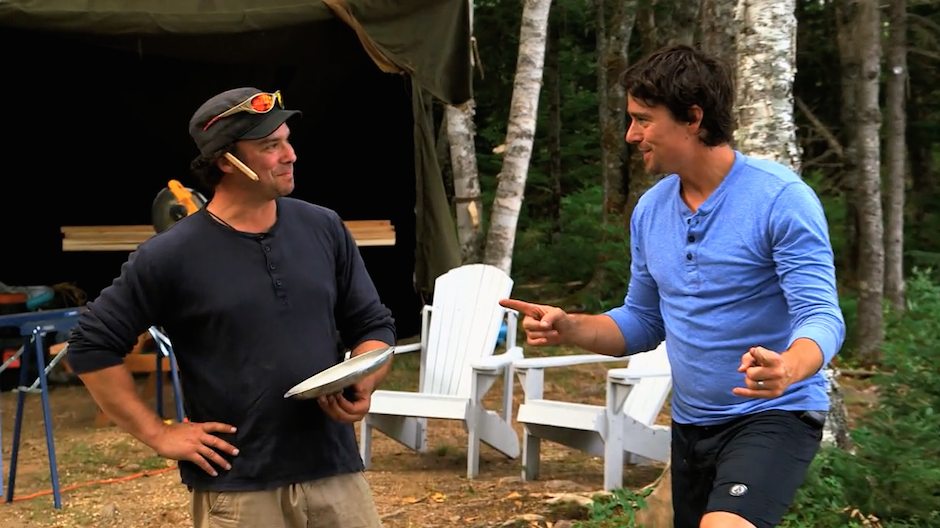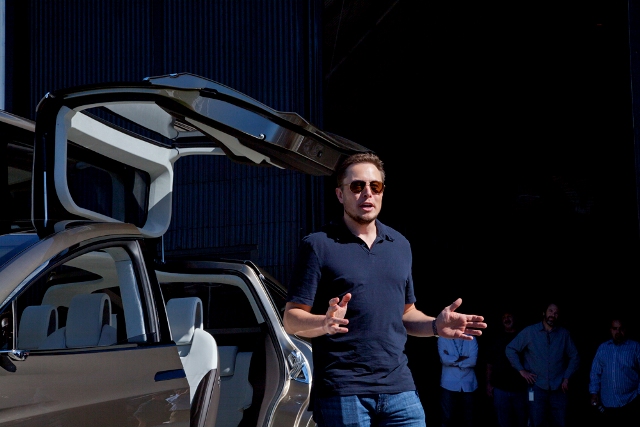The Muskoka Chair (or as more commonly called the "Adirondack Chair) is the classic furniture piece for any cottage, cabin, lakeside hut, or (sub)urban patio.
The iconic piece was designed by Thomas Lee while he was vacationing Westport New York in the Adirondack mountains in 1903. Looking for an alternative chair, he made up the design for the "Westport Plank Chair", and contracted a carpenter named Harry Bunnell who saw huge commercial potential for this simple chair, and filed for U.S. patent, selling the chairs for the next 20 years in different colours and materials, and individually signed by him. People looking for alternatives to wicker and rod-iron chairs flocked to the Westport Plank, and still do 112 years later.
To me, the Westport Plank, or Muskoka Chair, is one of the most uncomfortable chairs and biggest ripoffs of the Canadian north. Here's why:
1. Reclined Back: When you sit in a Muskoka Chair, it's structure forces your gaze to the sky, which is usually, at least in the Summer months, flooded with piercing sunlight. If you're on a lake, it means you can't stare out at it without cranking your neck forward, thus putting pressure on your upper spine. And if you attempt to sit up in it, you have to flex and strain your ab muscles in a position even a triathlete would find strenuous.
2. One Sightline: Another issue with the reclined back is you can't look left and right very well, which makes the Muskoka chair terrible for engaging in conversation with others, again, without cranking your next sideways.
3. The Westport Plunk: This is what I label the overtly awkward and embarrassingly disgraceful way in which one attempts to sit down into one of these contraptions; for not only does the back recline, but also the very seat itself--the place onto which one sets down one's posterior. If you have a bevy of some sort in your hand (coffee, beer, spirit), then you have most likely spilled it; if you have an ice cream cone, you may have lost a scoop or the whole darn thing; and getting kids into them is even worse. Terrible design.
4. Who Sits in Them?: Have you ever seen anyone actually sit in a Westport Plank/Muskoka Chair? I haven't. In cottage country, the headquarters of the Muskoka Chair where they even line store roofs, not one person can be seen sitting on them. At Weber's, the infamous hamburger spot along Hwy 11 North, there are scores of them available, including one fit for the giant of Jack and the Beanstalk lore--but not one person is sitting on them, the throng of burger and ice cream feeders preferring instead the picnic tables and simple wooden benches. Even the cottages along Lake Couchiching have flocks of Muskoka chairs all like ghosts along the emerald lawns and perched empty on the lazy docks. No one sits in them; and that speaks 'bad design'.
5. Terribly Overpriced: For such poor design, low functionality, and chiropractic issues, these chairs are EXPENSIVE retailing between $300 and $400. One cottage I observed has 6 sitting out, like cup cakes along their lawn in pink and blue and yellow--those things would've cost $1200! And again, they sit empty. Why would anyone spend money on such a lousy chair? That gets to the real reason people buy them, which is actually another reason why they are one of the biggest rip offs known to the Canadian north:
6. Overly Fetishized: These chairs, as we've seen, are uncomfortable, awkward, over-priced, and under-used, yet they represent, somehow and for some reason, the great Canadian outdoors. Why? Because the chair has become a symbol rather than a practical object. A symbol of what? Somehow, through powerful marketing or otherwise, these chairs have become a desirable object whose value is more about what it says than how it actually functions. They're like glorified garden gnomes or the flamingos one floods on a loved-one's lawn during a birthday or birth of a baby; they're not unlike a stone garden Buddha or a garden fountain that no one uses, or a bird bath--that's all.
I don't own a Muskoka chair, but have often looked at them with some desire--until I started sitting in them, and realized their status as mere symbol rather than as a practical and functional piece of furniture.
It is often maintained that in design, form should follow function. I maintain it is proven time and again that function is not even a consideration with these chairs. Hence, if you are looking for a Muskoka chair, rather than drop four-hundred bucks, maybe settle instead for a good stone garden gnome or perhaps a facile birdbath.












